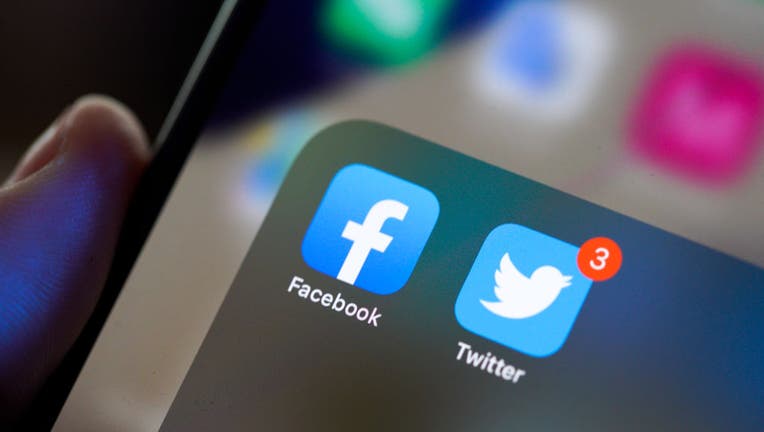Florida sued over law to ban social media content blocking

Twitter is testing the new feature on Android phones in English. (Photo by Jaap Arriens/NurPhoto via Getty Images)
TALLAHASSEE, Fla. (AP) -
Two groups representing online companies sued Florida on Thursday over a new law that seeks to punish large social media businesses like Facebook and Twitter if they remove content or ban politicians.
Republican Gov. Ron DeSantis signed a bill Monday that will allow the state to fine large social media sites if they inactivate a statewide politician’s account and will let any Floridian sue those companies if they feel like they’ve been treated unfairly.
NetChoice, a lobbying firm that represents Twitter, Facebook and other online companies, and the Computer and Communications Industry Association sued, saying the law violates First Amendment rights.
The suit filed in the U.S. District Court in Tallahassee says the law prevents companies from protecting users, advertisers and the public from "pornography, terrorist incitement, false propaganda created and spread by hostile foreign governments, calls for genocide or race-based violence, disinformation regarding Covid-19 vaccines, fraudulent schemes, egregious violations of personal privacy, counterfeit goods and other violations of intellectual property rights, bullying and harassment, conspiracy theories denying the Holocaust or 9/11, and dangerous computer viruses."
DeSantis attacked Big Tech during a press conference to sign the bill, comparing it to Big Brother in the George Orwell novel "1984." He said internet companies are censoring posts that don’t fit with the ideology of Silicon Valley.
Responding to Twitter and Facebook blocking former President Donald Trump, Republicans across the country have attacked social media companies for what they say is censorship of conservative ideology. While similar bills have been filed in other states, DeSantis was the first governor to sign one into law.
The governor’s office defended the new law, saying Big Tech companies discriminate on political and ideological line and the law protects Floridians constitutional rights.
"Big Tech is in some ways more powerful than government, and certainly less accountable. Free speech is a sacred right for all Americans. It is recognized that government has a role in protecting consumers against discrimination and deceptive/unfair trade practices, and this law is within that authority to rein in a powerful entity that oversteps individuals’ free speech rights," DeSantis spokeswoman Taryn Fenske said in an email.
The law that goes into effect July 1 calls for a $250,000 a day fine if a statewide political candidate’s account is inactivated and $25,000 a day if they remove an account of someone running for a local office.
The law will give Florida’s attorney general authority to sue companies under the state’s Deceptive and Unfair Trade Practices Act. It will also allow individual Floridians to sue social media companies for up to $100,000 if they feel they’ve been treated unfairly.
The law targets social media platforms that have more than 100 million monthly worldwide users, which include online giants as Twitter and Facebook. But lawmakers carved out an exception for Disney and their apps by including that theme park owners wouldn’t be subject to the law.
The law will require large social media companies to publish standards on how it decides to "censor, deplatform, and shadow ban."
Even before the lawsuit was filed, experts questioned whether it would be enforceable.
Federal law prevents internet companies from being sued for removing posts and federal law trumps state law when there is a conflict.
Section 230 of the Communications Decency Act exempts websites from being sued for removing content deemed to be "obscene, lewd, lascivious, filthy, excessively violent, harassing, or otherwise objectionable" as long as the companies are acting in "good faith."
"By constraining digital services’ ability to fight bad actors online, this law threatens to make the Internet a safe space for criminals, miscreants, and foreign agents, putting Floridians at risk," Computer and Communications Industry Association President Matt Schruers said in a press release. "Gov. DeSantis is correct that this is a free speech issue: a digital service that declines to host harmful content is exercising its own First Amendment rights."

